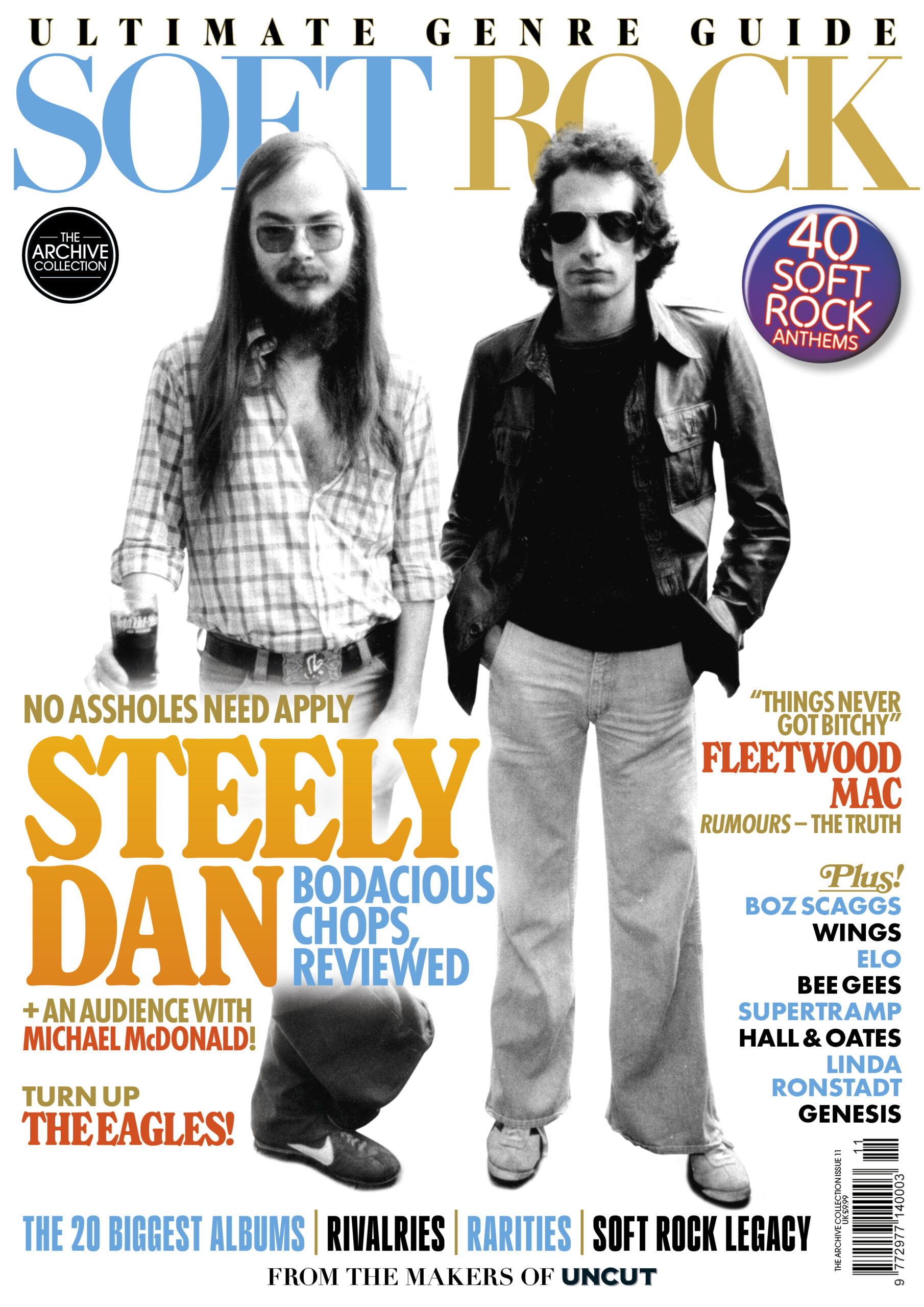
“No assholes need apply”
When Stevie Nicks played in the UK in mid-July there wasn’t a dry eye in the house – and by house we mean really large park. Some of that was down to the emotional power of Stevie’s mystical pop music. Much of it, however, also derived from an emotional connection with Stevie’s friend and Fleetwood Mac colleague Christine McVie, who had died since Stevie’s last visit to the country. Images of Christine were projected; tears flowed.
It was a very soft rock moment – a testament to the enduring power of this gentle and supremely melodic music. Perhaps the stars of, say, psychedelic rock were more musically or socially controversial, but as you’ll read in this revised special edition, just because artists in this genre sold an exceptional number of albums – if you enjoy large numbers please see our sales chart on p118 – didn’t mean that they were writing vapid jingles to do so.
Think of Fleetwood Mac, turning the thorny emotional details of their private lives into generational anthems. Or Genesis, mutating in a new decade from Edwardian-era prog into clever and accessible pop. Or, most particularly, of our cover stars Steely Dan, whose huge success was surely an ironic one: two highly-intelligent liberal arts graduates transforming their social difficulty, misanthropy and esoteric musical reference into drivetime staples adored by millions.
Did they crave it? Evidently not. In his 2017 obituary for the Dan’s Walter Becker, Uncut’s David Cavanagh pointed out that the band could relish being unrelatable. Steely Dan apparently approached their song “Chain Lightning” as “a song so abstruse it could never be deciphered”. As time passed and clues were reluctantly dropped, it emerged that the song joins two Nazis at a political rally, plucking up the courage to shake Hitler’s (or perhaps any extremist leader’s) hand. After the guitar solo, we meet them again 40 years later as they travel incognito to the same site on an occult itinerary.
In this particular mission, Steely Dan may have been on their own. But as you’ll read on these pages, Soft Rock was a broad and sophisticated church. From the all-conquering Eagles to Hall and Oates, via Supertramp, Boz Scaggs, Wings and Linda Ronstadt, it was a place which embraced femininity, complexity and melody, which worked live or in the studio, and could solve problems as well as start them. Where to begin? We’ve compiled our Top 40 Soft Rock songs to get you started, a primer to Soft Rock rivalry, and a review of its legacy.
It’ll give you a peaceful, easy feeling. Enjoy the magazine. It’s out Friday but you can pre-order here now.





